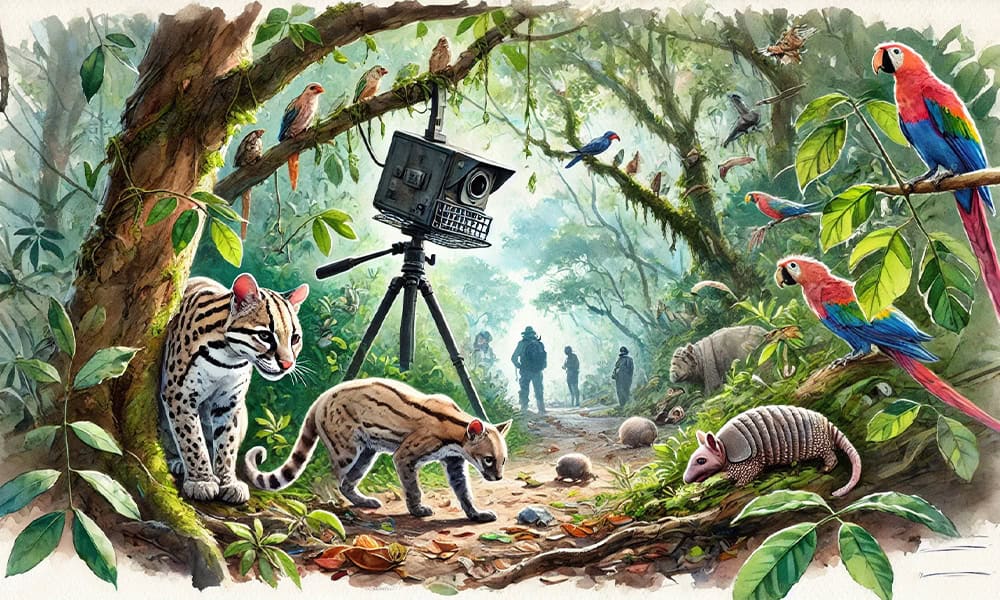The goals of my camera trap projects are clearly defined. The first and most important goal is documenting as many species of wildlife as possible. The second goal, and the reason my cameras are set to video mode rather than photo mode, is to record the fascinating behaviors of these creatures in their natural environment. So, in a perfect world, not only do I want to record videos of armadillos and ocelots, but I want to record an ocelot covering an armadillo meal with leaves to save for later.
There’s one species, that lives throughout Costa Rica, that frequently shows up on my cameras that I’m not particularly interested in and whose behaviors are often ill intentioned or frankly, gross – people. Every now and then, people are actually the point of the project. I’ve had security projects where the whole point is to place cameras where the electricity and internet can’t reach and record individuals who have no business creeping around where they’re creeping around.
For the most part, people are bycatch, I record them when the aim is really to record wildlife. Those videos can be grouped into three different categories – the innocuous, the illegal, and the R-rated.
Innocuous
This is easily my favorite category of human videos. These folks are in nature, doing their thing, and accidentally become part of a wildlife monitoring program. People that fit into this category are hikers, national park staff, landowners, and cowboys. On private property, along with the local wildlife, I’ll record the property owner enjoying his or her estate, maintenance guys swinging their machetes, and cowboys riding around hooting and hollering at their cattle. In national parks and protected areas, I’ll record staff diligently doing their jobs and weekend adventurers delightedly waving to my cameras. These are a happy, non-destructive group of people.
Illegal
I definitely have a problem with this group. These folks are either trespassing, looking to steal something, poaching, or logging trees. The reason I have a model of camera that has no visible light at night and often cover my cameras in camouflaged mesh is because these people do not want anybody to know what they’re doing and will happily steal or destroy my cameras. I haven’t kept count, but I must have had over 20 camera traps stolen over the last five years.
These people also impact the quality of the wildlife videos that I record. When I know there’s a chance someone will steal my cameras, I often have to forgo some of the best camera trap locations because they’re too visible to camera thieves.
R-rated
This category is either spicy or gross depending on what you’re into. It doesn’t happen often but every once in a while, I’ll record someone who very much believes they’re in the forest alone, so they’re doing some private things. Twice I’ve recorded some people who enjoy nature’s fresh air on all the parts of their bodies.
Once was a swimmer who wanted to be completely ‘free’ in the water and once was a guy who thought flipflops were the only required attire for a forest hike. Another time, in the forest of a hotel, a worker must have been machete-ing too far from the facilities when nature called because he accidentally lined himself up perfectly in front of a camera and… It was gross.
Costa Rica is an extremely biodiverse country. The variety of species that can be recorded with camera traps is enormous and, for me, endlessly fascinating, but there’s one species that shares that environment that I’d really rather avoid, ours.
About the Author
Vincent Losasso, founder of Guanacaste Wildlife Monitoring, is a biologist who works with camera traps throughout Costa Rica. Learn more about his projects on facebook or instagram. You can also email him at: vincent@guanacastewildlifemonitoring.com






